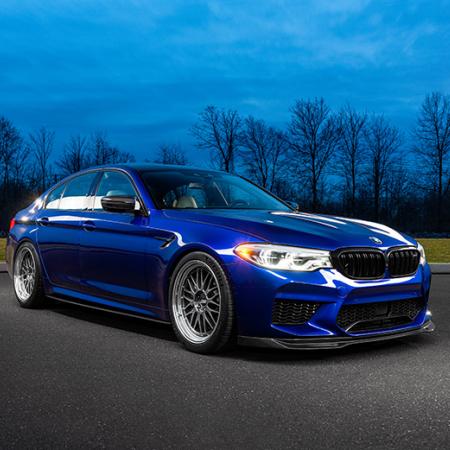BMW will offer extra services to attract drivers to its i-brand electric-car lineup, including occasional use of gasoline-powered models, Bloomberg News reports. It will also install optional at-home fast-charging systems for the i3 city car coming out at the end of 2013, Marcus Krieg, a sales-and-marketing manager, said at a presentation in Leipzig, Germany.
The four-seat, battery-powered i3 will enter a market that has yet to meet industry expectations. U.S. deliveries of Nissan Motor Co. electric Leaf totaled only 9819 in 2012, less than half of the 20,000 target. BMW islooking to offset expensive new materials with a sales setup intended to limit distribution costs.
“The BMW group is charting new territory,” Harald Krueger, the carmaker’s head of production, said at a separate presentation near Leipzig. “We are confident we will earn money with every BMW i3 we sell from the launch on.”
The i3 will be followed by the i8 electric-gasoline hybrid sports car in early 2014. The city car may be priced at about $52,200, according to an estimate by Stefan Bratzel, director of the Center of Automotive Management at the University of Applied Science in Bergisch Gladbach, Germany. BMW hasn’t announced yet how much the car will cost. The i8’s price will exceed $130,000 euros, Ian Robertson, the manufacturer’s sales chief, has said.
“The i3 is more a car for the wealthy few,” said Christian Ludwig, a Dusseldorf-based analyst with Bankhaus Lampe. “It’s not really practical with its limited range and limited loading space. You also need a garage or private parking space to charge the battery, as the public infrastructure is still very limited.”
BMW adapted the i3’s layout to the all-electric drivetrain, with an aluminum chassis that houses the battery pack and guarantees a low center of gravity, Krueger said. The passenger compartment will be made of carbon-fiber reinforced plastic, which weighs half as much as steel and is 30 percent lighter than aluminum, to counter the battery weight.
To balance costs for the more expensive carbon fiber material, BMW slimmed down the production process by reducing the number of body parts by two-thirds, Krueger said. The use of thermoplastics instead of steel for the body panels will eliminate the need for a paint shop.
“The I brand will play a pioneering role that drives technology to be rolled out over coming lifecycles and to the rest of the BMW brand,” Herbert Diess, the carmaker’s head of development, said earlier this month in Munich.
To prove that longer excursions are feasible with an electric vehicle, BMW is establishing a chain of quick-charging stations along the 590-kilometer route from Munich to Berlin that will take only 30 minutes to power up the battery, sales manager Krieg said. Hopefully they will be near a lunch stop.
The company outlined plans last July for a direct online sales platform for the i3 and i8 as well as a roaming sales force with a limited showroom network. BMW will also add the i3 to its DriveNow car-sharing fleet to enable a wider range of customers to explore the vehicle.––Paul Duchene









